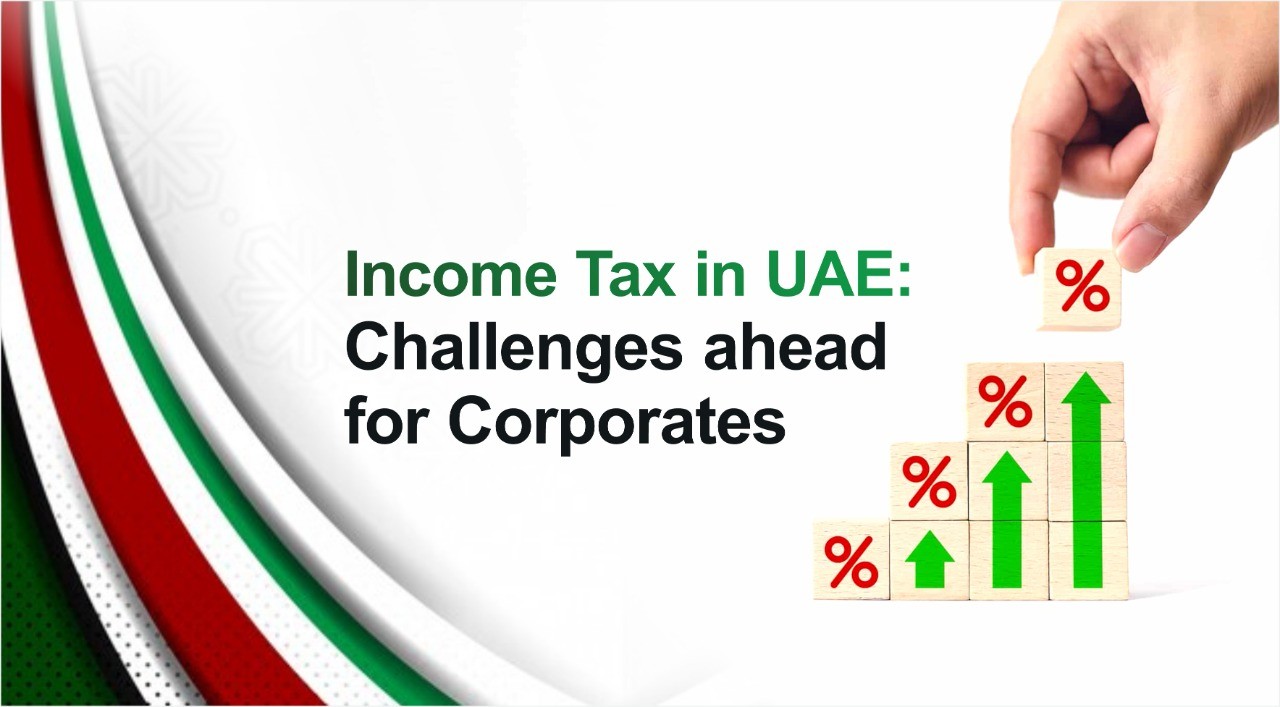 WhatsApp
WhatsApp
 Call Us
Call Us
 Email Us
Email Us
In January 2022, the Ministry of Finance made a significant announcement regarding the implementation of federal Corporate Tax (CT) on businesses' net profits. The effective date for this tax will be determined based on the financial year followed by each business, with two potential start dates - either July 1, 2023, or January 1, 2024. It's important to note that this Corporate Tax will have a broad-reaching impact, as it will be enforced uniformly across all emirates in the UAE.
According to Law No. 47 of 2022, which pertains to the taxation of corporations and businesses, companies will be obligated to adhere to the UAE Corporate Tax regulations commencing with their initial financial year that begins on or after June 1, 2023.
What is Corporate tax (CT)?
Corporate tax is a type of direct tax imposed on the net income or earnings generated by corporations and other legal entities as a result of their business operations.





A: All taxpayers, as prescribed by the Minister, will be required to register for UAE CT and obtain a Corporate Tax Registration Number. The Federal Tax Authority may also request certain Exempt Persons to register for UAE CT.
A: Read the Corporate Tax Law and the supporting information available on the websites of the Ministry of Finance and the Federal Tax Authority and various online forums. 2. Use the available information to determine whether your business will be subject to UAE CT and if so, from what date. 3. Understand the requirements for your business under the Corporate Tax Law, including, for example: a. Whether your business needs to register for UAE CT. b. What is the accounting / Tax Period for your business. c. By when your business would need to file a UAE CT return. d. What elections or applications can or should your business make for UAE CT purposes. e. How UAE CT may impact your business’ obligations and liabilities under contracts with customers and suppliers. f. What financial information and records your business will need to keep for UAE CT purposes. 4. Regularly check the websites of the Ministry of Finance and the Federal Tax Authority for further information and guidance on the UAE CT regime.
A: Under the Corporate Tax Law, a juridical person is considered a non-resident if it is incorporated in a foreign country and is effectively managed and controlled outside the UAE. A natural person is considered a non-resident for UAE CT purposes if he or she is not engaged in a taxable business or business activity in the UAE.
A: Where no election is made or the income of the foreign branch or permanent establishment is not eligible for an exemption from CT, the UAE CT payable on the income of the foreign branch or permanent establishment can be reduced by the corporate tax (or similar) paid on the relevant income in the foreign jurisdiction.
A: In-force International agreements (including international agreements for the avoidance of double taxation) to which the UAE is a party should be considered under the UAE CT regime. In case of a conflict between the Corporate Tax Law and an international agreement with respect to the right to tax a certain item of income, the relevant international agreement may limit the application of UAE CT.
A: The Corporate Tax Law makes a distinction between unincorporated and incorporated partnerships. “Unincorporated Partnerships” (as defined in the Corporate Tax Law) are essentially a contractual relationship or arrangement between two or more persons, as opposed to being a distinct juridical person separate from their partners / members. Unincorporated partnerships are treated as ‘transparent’ for UAE CT purposes. This means that an unincorporated partnership is not subject to UAE CT in its own right. Instead, each partner is subject to UAE CT on their share of the income from the business conducted through the partnership. Incorporated partnerships include limited liability partnerships, partnerships limited by shares and other types of partnerships where none of the partners have unlimited liability for the partnership’s obligations or other partners' actions. Such partnerships are subject to CT in the same manner as a corporate entity.






